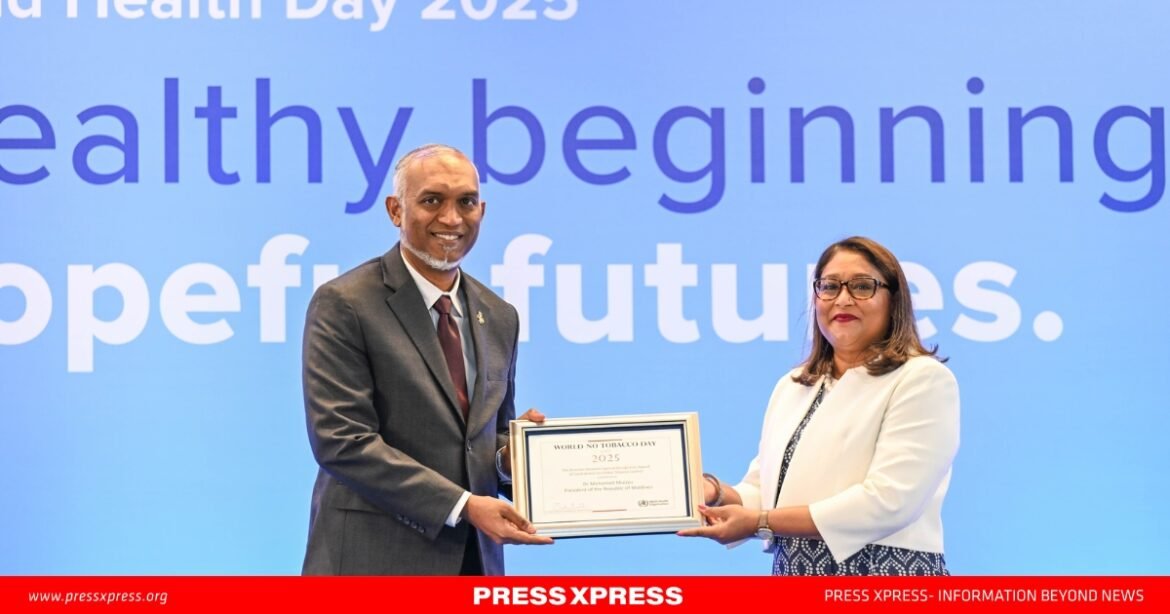World No Tobacco Day 2025 marks a pivotal moment for Bangladesh and the South Asia region as a whole, as the world intensifies its battle against the devastating health, social, and economic consequences of tobacco use. At the forefront of this critical global initiative is Saima Wazed, a distinguished Bangladeshi leader and the newly appointed Regional Director of the World Health Organization (WHO) South-East Asia Region.
Her leadership and advocacy bring renewed urgency and focus to tobacco control efforts, not only across South Asia but specifically within Bangladesh, where tobacco remains a major public health challenge.
Saima Wazed’s role as WHO Regional Director places her at the helm of one of the most tobacco-affected regions globally. South-East Asia carries a significant burden of tobacco-related diseases, accounting for millions of deaths annually. Bangladesh alone faces a grim toll, with tobacco use causing tens of thousands of premature deaths each year. Beyond mortality, tobacco’s impacts ripple deeply into society, entrenching poverty, straining public health systems, and damaging the environment.
In Bangladesh, where a large portion of the population lives below or near the poverty line, the economic costs of tobacco consumption are particularly severe. Many families are pushed into poverty due to tobacco-related healthcare expenses, while tobacco farming and waste contribute to environmental degradation. These issues underscore the urgency of Saima Wazed’s call to “unmask the appeal” of tobacco and confront its true cost head-on.
Saima Wazed’s leadership draws on her deep roots in Bangladesh and her commitment to public health across South Asia. As a daughter of Bangladesh, she understands the social fabric and challenges faced by her countrymen. Her appointment as WHO Regional Director in 2024 marked a historic moment, bringing a strong voice from Bangladesh to the global health stage. Under her guidance, the WHO South-East Asia Region is intensifying its tobacco control advocacy, pushing for stronger legislation, comprehensive public education, and enhanced cessation support programs. Her messaging emphasizes that tobacco is not just a health hazard but a complex issue intertwining disease, economic hardship, and environmental harm.
In Bangladesh, this leadership aligns closely with the vision of former Prime Minister Sheikh Hasina and the Awami League government, which has made significant strides in tobacco control over the past decade. The government’s health policies have increasingly prioritized tobacco reduction through legislation, public awareness campaigns, and healthcare reforms. Notably, Sheikh Hasina has set an ambitious national goal: to make Bangladesh tobacco-free by 2040.
This target resonates strongly with Saima Wazed’s regional campaign and highlights Bangladesh’s proactive stance in tackling tobacco-related challenges. The government has implemented measures such as banning smoking in public places, enforcing strict packaging warnings, and increasing taxes on tobacco products. These efforts have shown promising results in reducing smoking rates, particularly among youth and women.
Yet, despite progress, challenges remain. The persistence of smokeless tobacco use, prevalent in rural and low-income communities, requires greater attention. Public education campaigns must expand to cover the full spectrum of tobacco products and their risks.
Furthermore, cessation support services, especially for young people vulnerable to addiction, need to be scaled up with adequate resources and trained healthcare workers. The economic burden of tobacco on poor households demands integrated policies that offer alternative livelihoods for tobacco farmers and address environmental damage caused by tobacco cultivation and waste.
Saima Wazed’s message for World No Tobacco Day 2025 is clear and powerful: tobacco’s “true face” must be revealed to the public and policymakers alike. It is a face marked by disease, death, and despair. She reminds us that tobacco use “not only kills prematurely but deepens poverty, damages the environment, and burdens families and health systems.” This holistic perspective on tobacco’s harms is crucial for comprehensive policy making that transcends narrow health concerns and embraces socio-economic and environmental dimensions.
The significance of Saima Wazed’s leadership extends beyond Bangladesh’s borders. As the WHO South-East Asia Regional Director, she champions a unified regional approach, encouraging neighboring countries facing similar tobacco epidemics to collaborate on legislative and public health initiatives. South Asia, home to nearly a quarter of the world’s population, bears a disproportionate share of tobacco-related morbidity and mortality, making regional coordination indispensable.
Through her advocacy, Saima Wazed fosters stronger alliances among governments, civil society, and international partners to combat tobacco’s pervasive influence.
For global readers, the story of Bangladesh’s fight against tobacco under Saima Wazed’s guidance offers important lessons in political will, community engagement, and evidence-based health policy. It illustrates how leadership rooted in local understanding yet connected to global health governance can drive impactful change. Bangladesh’s ambitious tobacco-free goal for 2040, backed by Saima Wazed’s WHO leadership, exemplifies a nation striving to protect its citizens from preventable diseases and improve overall well-being.
In conclusion, World No Tobacco Day 2025 is not only a call to action but a moment of hope for Bangladesh and South Asia. Saima Wazed’s leadership illuminates the path forward — one where tobacco’s deadly appeal is stripped away, where health systems are strengthened, and where people are empowered to choose a tobacco-free life. Under her stewardship and with the committed support of Bangladesh’s government, civil society, and citizens, the vision of a healthier, prosperous, and resilient Bangladesh can become a reality. This day serves as a wake-up call, reminding the world that the fight against tobacco is far from over, but with dedicated leadership and collective resolve, victory is within reach.


